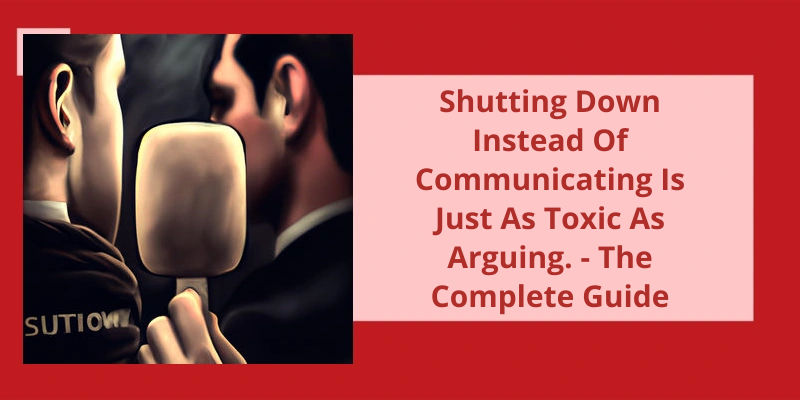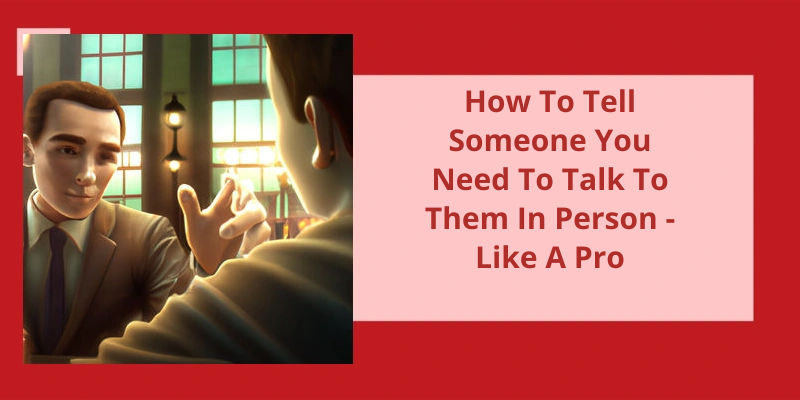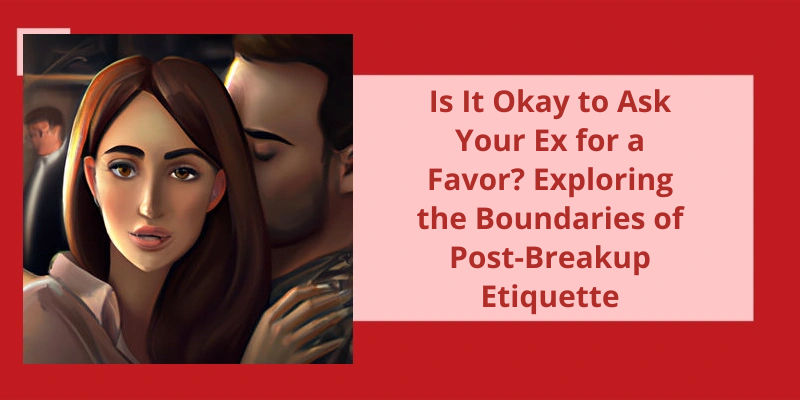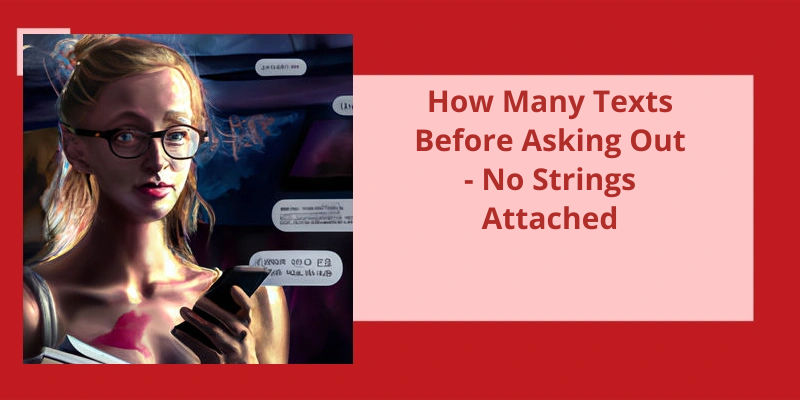Planning a date two weeks in advance can be an exciting and nerve-wracking experience. Whether you’re in the early stages of a relationship or looking to spice things up with your long-term partner, taking the time to plan a special outing can create lasting memories and strengthen your bond. However, with so many options available, it can be challenging to decide on the perfect date idea that’s both enjoyable and proven to be successful. From romantic dinners and scenic hikes to exciting adventures and cultural experiences, there are plenty of tried and tested date ideas that are guaranteed to make your two-week wait worthwhile. So, if you're wondering how to plan a date that will leave a lasting impression and bring you closer together, look no further. From the planning process to the execution, we'll guide you through every step to ensure your date is a resounding success. So, grab a pen and paper, and let's get started on planning the perfect date two weeks in advance!
How Many Days in Advance Should You Plan a First Date?
When it comes to planning a first date, timing is everything. You want to find a balance between giving yourself enough time to prepare and making sure that you don’t let too much time pass before the date actually happens.
Planning a date two weeks in advance allows both parties to have enough time to clear their schedules and make any necessary arrangements. It also shows that you’re serious about getting to know the other person and are willing to put effort into planning a special outing. By giving yourself ample time to plan, you can also ensure that you choose a date that suits both of your preferences.
When it comes to actually scheduling the date, it’s important to offer some flexibility. Instead of simply asking if they’re free on a specific day, it’s better to offer a few options. For example, you could say something like, “Are you free on Tuesday, Thursday, or Sunday?”. This shows that you’re considerate of their schedule and gives them the opportunity to choose a day that works best for them.
Once the day is locked in, it’s time to think about where to go and what to do on the date. It’s important to choose a location and activity that allows for conversation and getting to know each other better. Avoid overly loud or busy places that might hinder communication. Instead, opt for a quiet coffee shop, a park for a picnic, or a cozy restaurant with a romantic ambiance.
When offering a specific day, it’s helpful to provide a few options to accommodate their availability. By following these tips, you can plan a successful and enjoyable first date.
Suggestions for Date Ideas and Activities That Allow for Conversation and Getting to Know Each Other Better.
- Go for a scenic hike and chat along the trail
- Visit a local art museum and discuss your favorite pieces
- Take a cooking class together and share your culinary experiences
- Explore a nearby farmers market and talk about your favorite food finds
- Have a picnic in the park with good food and great conversation
- Go ice skating and enjoy a fun and lighthearted conversation on the ice
- Take a scenic drive and have deep conversations while enjoying the view
- Try out a virtual reality experience and discuss your immersive adventures
- Visit a local bookstore and recommend books to each other
- Go wine tasting and have meaningful discussions about different flavors
When it comes to planning a date, opinions may vary on whether a week in advance is too far. Some find it appealing, as it shows genuine interest and commitment. On the flip side, others may perceive advanced planning as a sign of a busy schedule. Ultimately, the judgement rests on individual preferences and circumstances.
Is Planning a Date a Week in Advance Too Far?
Planning a date two weeks in advance might be seen as excessive by some, but it certainly has it’s advantages. In todays busy world, finding a mutually convenient time can be quite challenging. By planning a date well in advance, you can ensure that both parties have the opportunity to clear their schedules and make the necessary arrangements. This level of commitment and organization can be quite impressive to some individuals, showcasing dedication and genuine interest in making the date happen.
Furthermore, planning a date ahead of time allows for ample time to build anticipation and excitement. It allows both parties to mentally prepare for the occasion, making the actual date more special and meaningful. Moreover, having ample preparation time also presents an excellent opportunity to carefully plan the details of the date and make it incredibly memorable.
They might question why someone needs such a long lead time or wonder if the person is simply keeping their options open. It’s essential to consider the individual preferences and circumstances of both parties involved.
If the connection is strong, trust is established, and both parties are on board with scheduling in advance, there’s no harm in planning ahead. However, if either party feels uncomfortable or prefers a more spontaneous approach, it’s important to respect their preferences and find middle ground that suits both individuals.
It allows for anticipation to build and ensures that both parties can prioritize the occasion. However, it’s crucial to understand that individual preferences and circumstances vary, and not everyone may feel comfortable with such advanced planning. Ultimately, effective communication and understanding each others needs are vital in determining the right approach to planning a date.
The Pros and Cons of Spontaneous Date Planning
When it comes to planning a date, there are both pros and cons to spontaneous decision-making. On the upside, spontaneity can add excitement and adventure to your date. It allows for flexibility and the element of surprise, which can keep things interesting.
However, there are also downsides to spontaneous date planning. One major disadvantage is that it may be difficult to find availability for certain activities or venues at the last minute. This can lead to disappointment or having to settle for a less desirable option.
On the other hand, planning a date two weeks in advance has it’s own set of proven benefits. It allows for ample time to make reservations, secure tickets, or plan special surprises. Additionally, scheduling in advance ensures that both parties can set aside dedicated time for the date, reducing the chance of conflicts or cancelations.
All in all, the ideal approach to date planning may vary depending on personal preferences and circumstances. Spontaneity can create memorable moments, but careful planning provides a sense of security and increases the likelihood of a successful and enjoyable date.
Source: If A First Date Is Scheduled A Week Away, Is It More Likely To …
When it comes to planning a date, timing is everything. According to numerous discussions on Reddit, it’s suggested to plan a date for the same night, the very next night, or at the most, the day after. Any longer than that, and it might be wise to assume that the date won’t happen. In case your potential date mentions being busy for several consecutive days, it’s advisable to communicate the statistical likelihood of cancellation.
How Many Days in Advance Should You Plan a Date Reddit?
When it comes to planning a date, timing is everything. The question often arises: how many days in advance should you plan a date? Well, according to popular opinion, the best approach is to plan for the same night, the very next night, or the day after. These options seem to be the most popular and effective.
While it may seem tempting to plan a date further in advance, it’s important to note that any longer than a few days could increase the likelihood of the date being cancelled. Life gets busy, unexpected events occur, and schedules can quickly change. By keeping the timeframe short, you increase the chances of the date actually happening.
So, what should you do if your potential date tells you they’re busy for several days in a row? In this case, it’s important to be honest and straightforward. Let them know that statistically, the longer the wait, the higher the probability of the date being cancelled. By acknowledging this fact, youre setting realistic expectations and showing that you value their time and the potential for a successful date.
Of course, it’s essential to remain flexible and understanding. Everyone has commitments and obligations, and sometimes plans need to be adjusted. By keeping the conversation open and honest, you can navigate potential scheduling conflicts and find a mutually convenient time to meet.
Ultimately, the best course of action is to plan your date within a short timeframe, ideally within the same night or the next couple of days. This approach increases the likelihood of the date happening and shows your genuine interest in spending time together. Remember, open and honest communication is key when it comes to planning a successful date, regardless of the timeframe involved.
In the world of dating, finding the right timing can make all the difference. While taking things slow can be beneficial, waiting too long between dates can have unintended consequences. According to relationship expert, Gordon, maintaining a slow but steady pace is crucial, as prolonged periods of no contact can harm your chances with someone. However, striking a balance is key, as moving too slowly can also hinder the progress of your budding relationship. So, how do you find the sweet spot in planning your next date?
Is Two Weeks Too Long to Wait for a Date?
Is two weeks too long to wait for a date? Thats a question that many people ask themselves when it comes to planning their next date. While there’s no hard and fast rule, experts suggest that waiting too long can potentially kill your chances with someone. According to relationship expert, Gordon, a slow progression or intermittent lulls of no contact in between dates can make the other person lose interest. So, if youve been hitting it off with someone and want to keep the momentum going, it might be best not to wait too long.
At the same time, it’s important to find a balance between rushing into things and moving too slowly. While going slow is fine, moving too slowly can have adverse effects as well. It’s all about finding that sweet spot where both parties feel comfortable and excited about the date. Communication plays a key role in this process. If you both talk openly and honestly about your expectations and timelines, you can avoid any misunderstandings or frustrations.
Planning a date two weeks in advance can give you plenty of time to prepare and make sure everything goes smoothly. It allows you to consider various options, such as choosing the perfect location, planning an exciting activity, or making reservations at a popular restaurant. Plus, it builds anticipation and excitement for both parties, heightening the overall experience. However, it’s essential to keep in touch during those two weeks to maintain interest and connection. Sending occasional messages or having a quick phone call can go a long way in keeping the flame alive.
Ultimately, the success of a date doesn’t solely rely on the timing but rather on the connection and chemistry between the two individuals. So, whether you plan a date in a week or two weeks, what matters most is that you both feel excited and invested in spending time together. It’s all about finding the right balance, maintaining communication, and keeping the momentum going. So, go ahead and plan that date, but remember to enjoy the journey and not get too caught up in the timing.
How to Maintain Interest and Connection During a Two-Week Wait Period
During a two-week wait period before a planned date, it’s important to maintain interest and connection with your partner. One way to do this is by engaging in regular communication. Send thoughtful messages, ask about their day, and share updates about your life. This helps keep the conversation flowing and shows that you’re interested in them.
Another way to maintain interest is by planning activities or experiences for your date. You can suggest a fun outing, a new restaurant to try, or a shared hobby to explore together. This not only demonstrates that you’re actively thinking about the date, but it also gives you something to look forward to and discuss during your conversations.
Additionally, make an effort to show genuine curiosity about your partner’s interests and hobbies. Ask questions, listen attentively, and support their passions. This not only creates a deeper connection but also reinforces that you value their individuality and want to know more about them.
Lastly, consider creating anticipation and excitement by dropping small hints or surprises related to the upcoming date. For example, you can casually mention a special location or activity you’ve planned without revealing all the details. This will pique their curiosity and build anticipation for the big day.
By following these tips, you can maintain interest and connection during the two-week wait period and ensure that your planned date is even more enjoyable and memorable.
How Far in Advance Should You Confirm a Date?
Are we still good for our date at [time]?”. This shows that you’re excited to see the person and gives them a chance to confirm or reschedule if necessary. It’s important to confirm the day before because it allows both parties to make any necessary adjustments to their schedule.
However, when it comes to planning a date two weeks in advance, it’s advisable to confirm a bit earlier. Two weeks is a long time, and plans can easily be forgotten or overlooked. By confirming earlier, you establish clear communication and ensure that both parties are aware and prepared for the date.
This gives both parties enough time to make any necessary arrangements or changes if needed. By confirming at this point, you show that you’re organized and genuinely interested in going on the date.
When confirming, be polite and considerate. Avoid being too pushy or demanding, as it can come across as overly eager or desperate. Instead, simply express your excitement and anticipation for the upcoming date. A simple message such as, “Hey, just wanted to touch base and make sure were still on for our date in a week. Im really looking forward to it!” can go a long way in solidifying your plans.
Remember, clear communication is key in any relationship, even before the first date. By confirming your plans in advance, you demonstrate your commitment and consideration towards the other person. It shows that you value their time and are willing to make the necessary arrangements to ensure a successful and enjoyable date.
Tips for Confirming a Date With Someone You Haven’t Met in Person Before
When planning a date with someone you haven’t met in person before, it’s essential to follow a few tips to ensure a successful and enjoyable experience.
Firstly, it’s crucial to pick a suitable date and time. Two weeks in advance gives both parties enough time to make arrangements and ensures that the date doesn’t clash with any prior commitments.
Once you’ve settled on a date, it’s time to confirm. Reach out to the person through a preferred method of communication, such as a text message or email, and express your excitement about the upcoming date. Confirm the agreed time, date, and location to avoid any confusion.
Additionally, it’s a good idea to discuss any specific details or preferences beforehand, such as dietary restrictions or desired activities. This ensures that both parties feel comfortable and can enjoy the date to the fullest.
Lastly, remember to finalize the plans a day or two before the actual date. This not only serves as a reminder for both parties but also allows for any last-minute adjustments that may be necessary.
By following these tips, you can confirm a date with someone you haven’t met in person before and increase the chances of having a successful and enjoyable experience.
Is a week too long to wait for a date? According to dating expert Hayley Quinn, one to two weeks of chatting is the optimum amount of time before going on a date. Quinn argues that this timeframe allows individuals the opportunity to get to know each other somewhat before meeting in person, without risking the potential for the initial spark to fizzle out.
Is a Week Too Long to Wait for a Date?
When it comes to planning a date, there’s a delicate balance to strike. Is a week too long to wait before meeting face-to-face? According to dating expert Hayley Quinn, it might just be the perfect amount of time. In her experience, one to two weeks of chatting allows for enough interaction to get to know someone, without allowing the spark to fizzle out.
Why is this timeframe considered optimal? Well, imagine meeting someone and immediately rushing into a date. While the initial excitement is undeniable, it may not provide enough time to truly understand the other persons interests, values, and compatibility. One or two weeks of chatting enables you to delve deeper into conversations and uncover those important aspects that contribute to long-term success.
On the flip side, waiting too long can also be detrimental. If you spend months getting to know someone, there’s a chance that the initial excitement and anticipation will fade away. It’s crucial to strike a balance between getting to know them and keeping the momentum going. This is where the one to two-week timespan proves invaluable.
During this period, you’ve the opportunity to build a solid foundation of connection while still leaving enough room for the anticipation and excitement of the upcoming date. It allows both parties to maintain interest and curiosity, making the actual meeting all the more special.
Conclusion
By giving yourself ample time to prepare and organize, you can focus on creating a thoughtful and personalized date that will impress your partner. From booking special reservations or tickets to ensuring you’ve enough time for self-care and relaxation, the two-week lead time allows for a stress-free and enjoyable dating experience. Remember to communicate openly with your partner and consider their interests and preferences to create a date that’s meaningful and unique to your relationship.






